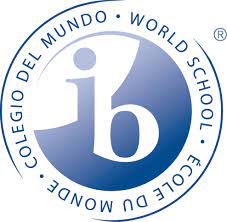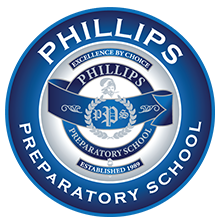
International Baccalaureate Middle Years Programme
The IB Mission
The International Baccalaureate aims to develop inquiring, knowledgeable and caring young people who help to create a better and more peaceful world through intercultural understanding and respect. To this end, the organization works with schools, governments
What is an International Baccalaureate (IB) Education?
The IB offers high-quality
- focuses on learners
- develops effective approaches to teaching and learning
- works within global contexts
- offers a curriculum that is broad and balanced, conceptual and connected
What is the IB Middle Years Programme (MYP)?
The MYP is designed for students aged 11 to 16. It encourages students to become creative, critical and reflective thinkers. The MYP emphasizes intellectual challenge, encouraging students to make connections between their studies in traditional subjects and the real world.
It fosters the development of skills for communication, intercultural understanding and global engagement-essential qualities for young people who are becoming global leaders.
The MYP is flexible enough to accommodate most national or local curriculum requirements.
The IB Middle Years Programme:
- addresses intellectual, social, emotional and physical well-being
- provides students opportunities to develop the knowledge, attitudes, and skills for the future
- ensures breadth and depth of understanding through study in eight subject groups
- requires the study of at least two languages.
- empowers students to participate in service within the community
- helps to prepare students for further education, the workplace and a lifetime of learning
The Curriculum
The MYP consists of eight subject groups: language acquisition, language and literature, individuals and societies, sciences, mathematics, arts, physical and health education, and design. Student study is supported by a minimum of 50 hours of instruction per subject group in each academic year.
MYP Projects
MYP projects provide students the opportunity to demonstrate what they have learned in the MYP. In schools that include MYP years 5, all students must complete the personal project. As a programme that includes MYP year 3, students must complete the community project.
- The community project encourages students to explore their right and responsibility to implement service as action in the community. Students may complete the community project individually or in small groups.
The MYP: A Unique Approach, Relevant for a Global Society
The MYP aims to help students develop their personal understanding, their emerging sense of self and responsibility in their community. MYP teachers organize the curriculum with appropriate attention to:
- Teaching and learning in context. Students learn best when their learning experiences have context and are connected to their lives and the world that they have experienced. Using global contexts, MYP students explore human identity, global challenges and what it means to be internationally minded.
- Conceptual understanding. Concepts are big ideas that have relevance within specific disciplines and across subject areas. MYP students use concepts as a vehicle to inquire into issues and ideas of personal, local and global significance and examine knowledge holistically.
- Approaches to learning (ATL). A unifying thread throughout all MYP subject groups, approaches to learning provide the foundation for independent learning and encourage the application of their knowledge and skills in unfamiliar contexts. Developing and applying these skills help students learn how to learn.
- Service as action (community service). Action (learning by doing and experiencing) and service have always been shared values of the IB community. Students take action when they apply what they are learning in the classroom and beyond. IB learners strive to be caring members of the community who demonstrate a commitment to service-making a positive difference to the lives of others and to the environment. Service as action is an integral part of the
programme , especially in the MYP community project. - Language and identity - MYP students are required to learn at least two languages. Learning to communicate in a variety of ways is fundamental to their development of intercultural understanding and crucial to their identity affirmation.
IB Quality Assurance
Any school, or group of schools, wishing to offer one or more IB
A good curriculum develops a range of student skills. The MYP encourages teachers to assess this acquired skill set, including how to succeed in written examinations. Typical MYP assessment tasks include open-ended, problem-solving activities and investigations, organized debates, tests and examinations, hands-on experimentation, analysis
The IB Middle Years Programme, © International Baccalaureate Organization 2015
The full publication may be found







